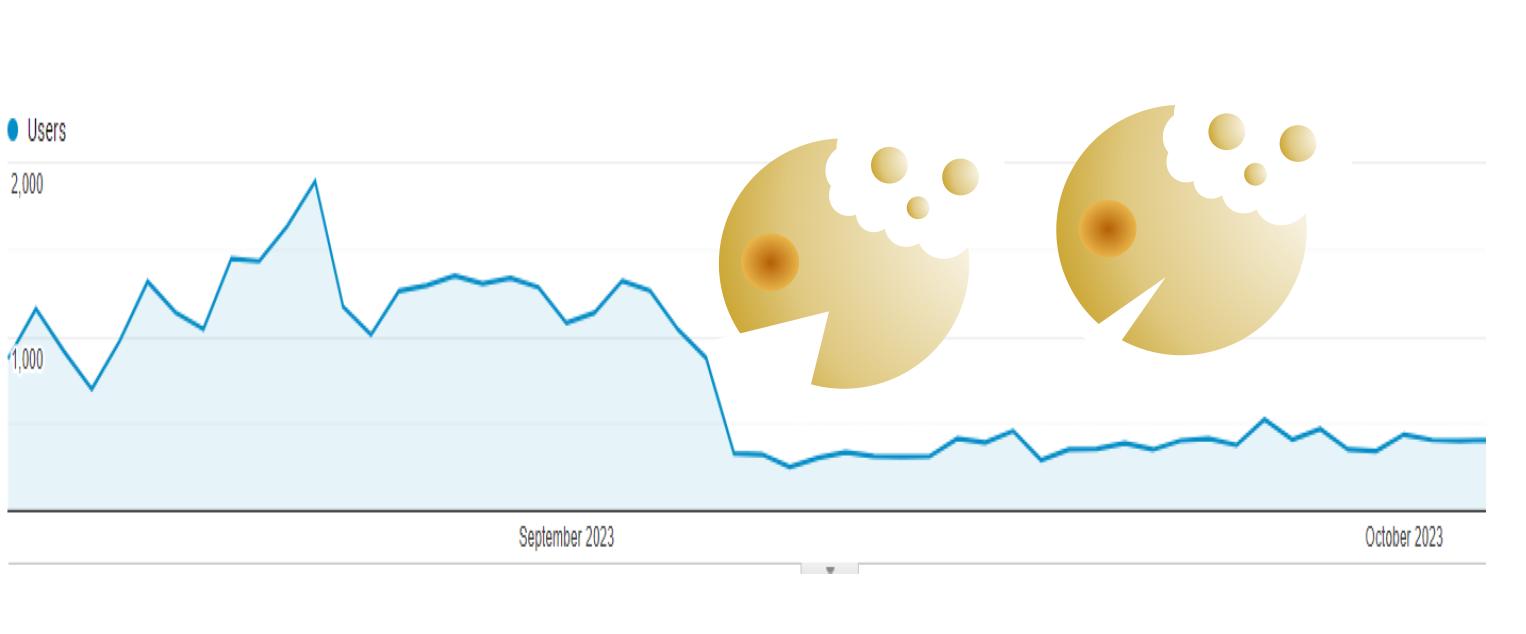

Web analytics has always been the cornerstone of online marketing, particularly in tracking user engagement and conversion rates. However, with new cookie regulations coming into play in 2023, what we consider as “reliable data” may not be as straightforward as it used to be.
Our client recently revamped their website, investing time and effort into creating a more engaging platform. The good news? Engagement metrics have increased by 50-60%, and conversion rates have jumped by 60-70%. The alarming part? A drastic 75% drop in website traffic.
Upon examining the setup, we found no significant errors in data tracking. Paid traffic through Google and Facebook, which constitutes most of the website’s visitors, showed only cosmetic changes. Organic and direct traffic had similarly declined, leaving us puzzled.

The one variable that had changed was the cookie consent bar. Previously, the website had an ‘OK’ button that enabled cookies by default. The new website offers more options: ‘Accept All Cookies’, ‘Set Preferences’, and ‘Deny All’.
This seemingly minor change had a major impact. It’s now easier for users to deny cookies, and they’re doing it on a large scale. The new bar aligns with 2023’s cookie regulations, but it also means that web analytics is based on a much smaller sample size, roughly 25% of actual visits.
It’s vital to rely on calculated metrics to gauge actual visit numbers. One approach could be to take the number of clicks from ad systems, adjust for irrelevant clicks, and then apply a coefficient to estimate real visits based on tracked sessions.
With this limited data set, it’s beneficial to use multiple tools for a more complete picture. Server log tracking, for instance, can offer an idea of actual traffic, even if it can’t be directly linked to other analytic metrics.
Yes, web analytics remains a powerful tool for understanding user behavior, but it’s crucial to adjust our expectations. The numbers should now be seen as a baseline for comparisons over time, rather than as definitive figures. Utilizing multiple data sources can provide a broader understanding, enabling better decision-making in your marketing strategies.
